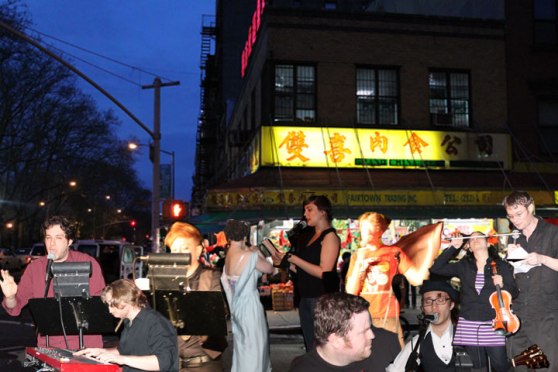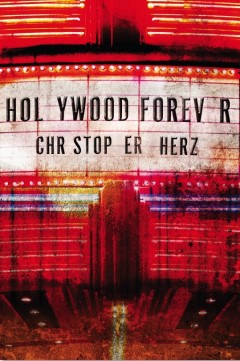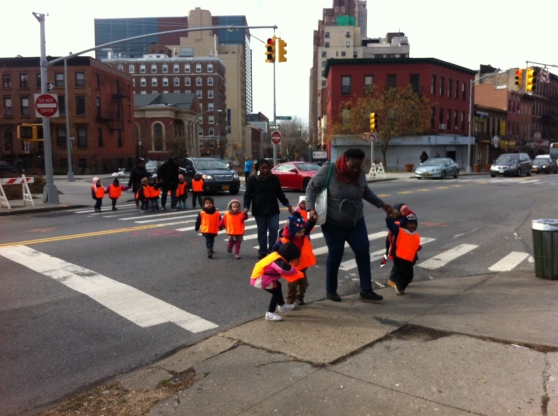“I feel that with my decision to devote myself to the novel I took on one of the responsibilities inherited by those who practice the craft in the U.S.: that of describing for all that fragment of the huge diverse American experience which I know best, and which offers me the possibility of contributing not only to the growth of the literature but to the shaping of the culture as I should like it to be. The American novel is in this sense a conquest of the frontier; as it describes our experience, it creates it.”
-Ralph Ellison
I often turn back to Ralph Ellison when I’m starting something new. I can’t help myself. Invisible Man, for me, is the great American novel. If even there is such a thing, then Ellison’s work is it. Perhaps it was the time in which I read the book – in College, at San Francisco State, while enrolled in my Black Studies classes. This one was taught by Dr. Mary Hoover. I cannot remember reading a work of fiction that floored me in both technique and story as this one. It is, I believe the most of all American Tales.
It was the book that affirmed for me that writing novels was the way to communicate with the world, and to a large extent, I haven’t gotten it right yet, but it’s not going to keep me from trying. After all, if one bangs their head against the wall long enough, we’re either going to knock down the wall or knock ourselves out. Either way, there will be result of action.
The above quote is from a Paris Review interview with Ellison who goes on at length about writing and what he set to achieve with the book. It is interesting that he distinguishes writing “The American Novel” instead of just a novel itself. Perhaps though, he is right. Most of the work to come out of this country, from what I have read at least, is about that conquering of a frontier, and at the same time, with that conquest, actually creating some form of reality from the novel. Perhaps that is why so many Americans want to be novelists.
We may be looking for a myth to call our own. While other countries in the world have thousands of years of tradition, religion, culture, etc. to fall back on, Americans have a short time frame in their history, with most of it being created on realities that are often overlooked or thought best to be forgotten (slavery, stealing of land from native Americans and Mexicans, etc.) Perhaps then, in a nation without a stable experience, we need to find our place by creating myth.
“…shaping of culture as I should like it to be”. That quote has really been sticking with me. If this is indeed the fact, our novels are all attempts to put our visions of the country out there in the world. The American novelist, more than any other country then, is creating a foundation to draw upon for it’s own material. I wonder if that is true. If we look at the novels that we read in High School, for what was required reading, it does provide an interesting foundation. I’m not sure what children are reading in High School these days, but for me, the novels that set my foundation for myth were:
1984, Catcher in the Rhye, A Single Pebble, The Collector, The Stranger, and The Diary of Anne Frank.
Looking at these now, I realize that the only two American novels out of the bunch are Catcher in the Rhye and A Single Pebble. Both of those, in some way, are indeed about conquering a frontier. It appears in this brief sampling, that Ellison was right. Though the frontier that’s captured in Catcher in the Rhye is more of the conquering of youth in the form of New York City while A Single Pebble is about an American trying to conquer a foreign being, there is that sense of journey to discover something outside of ourselves.
Is that what the purpose of the American novel is? If so, it brings me back to a conversation I had a with a foreign student while teaching English a few years back. When I was talking about how Walt Whitman went away and wrote in a cabin on Walden Pond, about how he wanted to go and discover himself, she remarked how “selfish” the act was. How one man took up so much time discovering what he wanted for himself. How he wanted to define himself. Is that something that is inherent to the American novel? That we are trying to figure ourself out?
In this past Sunday New York Time’s book review section, when Jonathan Franzen was asked what kind of books he enjoys reading, he remarked “I like fiction by writers engaged in trying to make sense of their lives and of the world in which they find themselves..” This would seem to back up Ellison’s answer to the following question:
“Would you say that the search for identity is primarily an American theme?”
“It is the American theme. The nature of our society is such that we are prevented from knowing who we are. It is still a young society, and this is an integral part of its development.”
So then, so far, the American novel has been concerned with the question “Who Am I” or simply, answering the first lines of Hamlet: “Who’s there?”
I cannot and do not wish to answer for the entirety of the ever-growing list of American novelists as to whether or not the big question everyone is trying to answer is “What the hell am I doing here in this country and how am I going to live with myself as an American”, but I can at least answer for myself, and try like hell with my next work to move away from that question. The American novel may be in a state of stagnation because it continues to ask the same question over and over again.
I, as much as anyone with the 3 books I’ve written, is guilty of the very same thing. How then to move on and away from such things without being untrue to who I am: An American searching for some kind of identity. And, more than that, to take some of the importance away from the novelist themselves, as being the shaper of myth. Perhaps it is now more about an exploration of the rest of the world by taking the American and their importance to it out of the picture.
I would be an interesting dive to say the very least.


